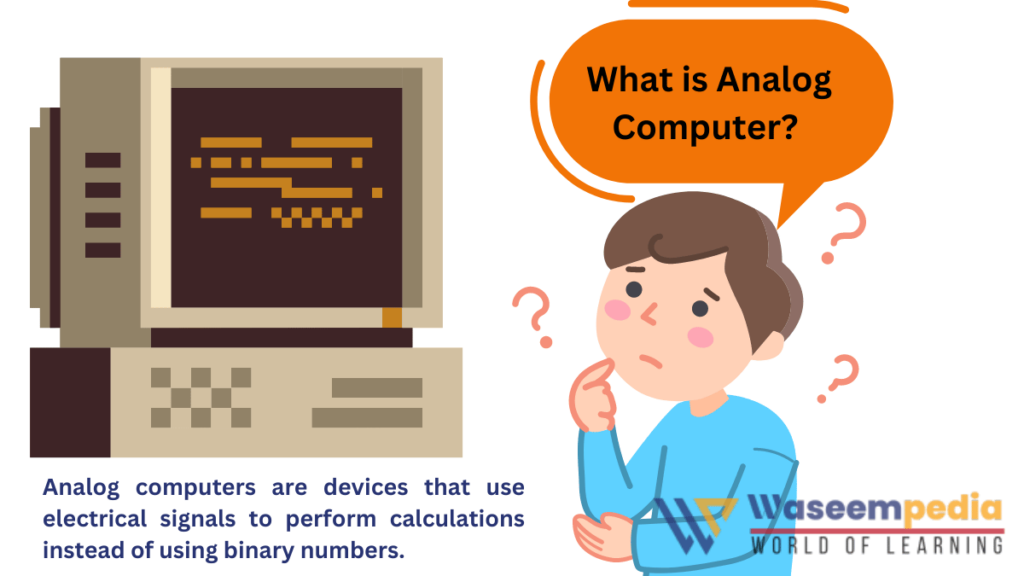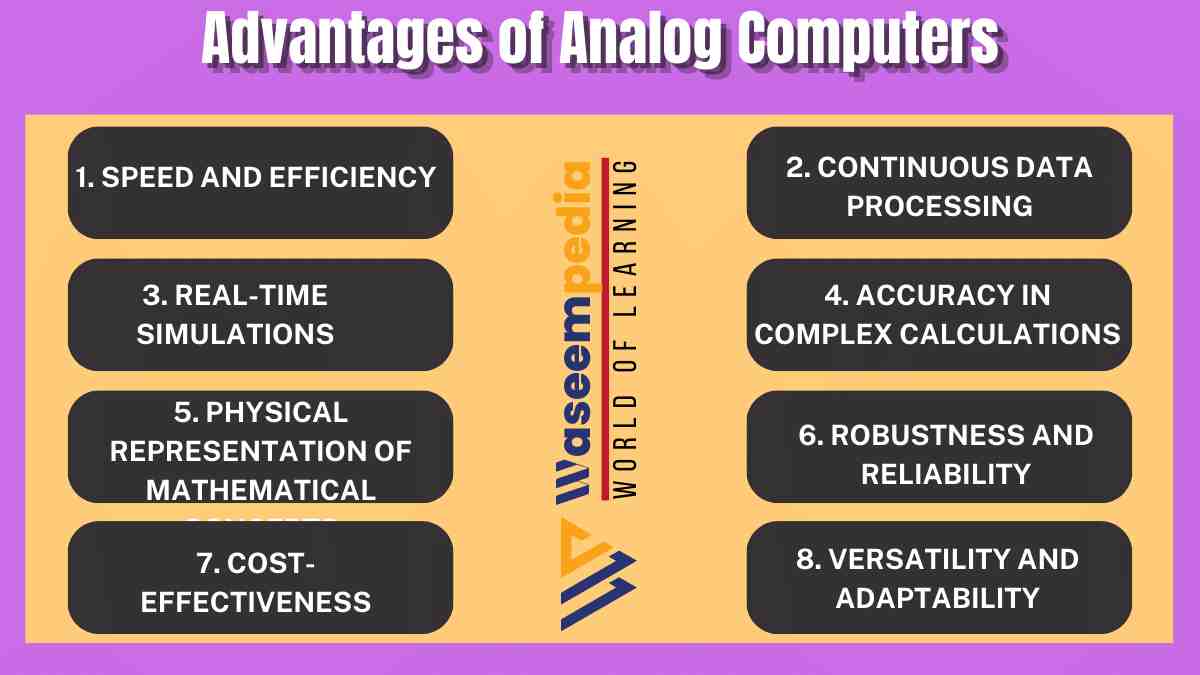Analog computers are good at certain things and have their place. Analog computers having many advantages like they’re quick, handle ongoing data, and make real-time simulations. They show math in a hands-on way and can be cheaper. Even though digital computers are used more, analog computers still matter in special places where they shine the brightest.

Analog computers have been important in the history of computing. While digital computers are more common nowadays, analog computers still have special benefits in certain situations. Let’s learn about the good things analog computers can do and why they matter even in our digital world.
9 Advantages of Analog Computers
There are many Advantages of Analog computer but waseempedia explains 9 Advantages of Analog Computers that are as following
1. Fast and Efficient
Analog computers are super speedy when it comes to working with nonstop information. Unlike digital computers that handle data in chunks, analog ones work with smooth, continuous numbers. This helps them solve difficult math problems quickly. They’re great for things that need to happen right away, like real-time activities and simulations.
2. Handling Continuous Data
Analog computers are champs at dealing with unbroken data. They can make accurate models and copies of real-world stuff. By using real electrical voltages and other physical things, they can show us what happens in the real world. This is super useful for science, engineering, and other smart people things.
3. Doing Simulations Right Away
Analog computers are awesome at making simulations happen right now. They can copy things that change and give us answers right away. This helps engineers and scientists understand tricky systems while they’re still happening. This is really important in making things like planes, cars, and machines that work well.
4. Getting Hard Math Right
Analog computers are like math wizards. They’re really good at solving tough math problems with hardly any mistakes. They use special electronic parts to do this, and it’s really important for science work. It helps them make accurate models and predictions.
5. Making Math Real
Analog computers don’t just use numbers and rules—they use real things like electricity to show math ideas. Unlike digital computers that use abstract ideas, analog computers use real stuff we can touch. This helps us understand math better and is great for learning science and math.
6. Tough and Trustworthy
Analog computers are strong and don’t break easily. They’re simple and don’t rely on lots of complicated parts. This means they’re good at working without stopping, which is needed for things like controlling machines and checking stuff in real-time.
7. Saves Money
Analog computers can be cheaper to make for certain jobs. Sometimes, they only need simple parts, and that makes them cost less than fancy digital computers. They’re good for things where being perfect isn’t the most important thing, and when we need to stick to a budget.
8. Works in Many Ways
Analog computers can do lots of different things. They can work with different kinds of signals, like electricity, moving parts, and fluids. This makes them handy in many jobs, like making phones work better, understanding how liquids move in pipes, and even figuring out how our bodies work.
9. Helps Learning and Research
Analog computers have a long history in schools and labs. They’re great for teaching and trying out new ideas. They’re hands-on and show real things happening, which helps students and scientists learn more about math and how stuff works.
Limits of Analog Computers
While analog computers are cool, they have some problems. They can get messed up by noise and tiny mistakes from their parts or the environment. Also, they can’t store data well and can’t control values precisely. They’re a bit tricky to design and keep working compared to digital computers, so they’re not great for every job.
Comparing with Digital Computers
Digital computers are the big winners now. They’re awesome at storing lots of information and doing really hard math problems. They’re perfect for things like secret codes, looking at tons of data, and making computers think like humans. While analog computers have special talents, digital computers are better at many things.
Related FAQ’s
What are the disadvantages of analog computing?
Disadvantages of analog computing include susceptibility to noise, limited precision, difficulty in programming and reconfiguration, and the need for calibration and maintenance.
What are 3 characteristics of analog computer?
Three characteristics of analog computers are continuous input and output signals, parallel processing capability, and suitability for solving differential equations.
What are the advantages of analog or digital meter?
The advantages of analog meters include simplicity, ease of interpretation, and low cost. Digital meters offer higher accuracy, better resolution, and compatibility with modern digital systems.
What are the types of analog computer?
The types of analog computers include electronic analog computers, mechanical analog computers, and hybrid analog computers.

